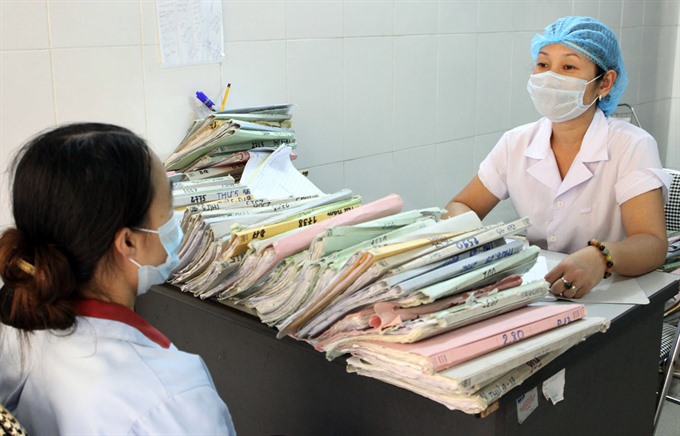 Society
Society

With women facing increased risks of HIV infection, experts are calling for greater emphasis on addressing the needs of women and girls in the national HIV response.
 |
| The outpatient clinic at the Việt Nam-Czech Friendship Hospital is currently offering treatment for 1,200 HIV/AID patients. - VNA/VNS Photo Dương Ngọc |
HÀ NỘI — With women facing increased risks of HIV infection, experts are calling for greater emphasis on addressing the needs of women and girls in the national HIV response.
Speaking yesterday at a Hà Nội workshop on the importance of mainstreaming gender into HIV work, Shoko Ishikawa, UN Women Country Representative said women and girls living with HIV "now face extraordinary, and often intersecting, forms of discrimination. Many face losing their home, custody of their children and property and inheritance rights.”
Women who engaged in sex work also suffer high levels of discrimination, she said.
In 2014 an estimated 240,000 adults were living with HIV in Việt Nam. Although the number of new infections had remained high at 14,000 a year, the proportion of infected women increased from one in four in 2007 to one in three by 2014. More than half of women living with HIV reported their only possible exposure to HIV being through a husband or long-term sex partner who had engaged in high-risk behaviour, according to the Việt Nam Administration of HIV/AIDS Control (VAAC).
VAAC deputy general director Phạm Đức Mạnh said there is "limited awareness and legal and policy framework which focus on women and girls living with HIV at the moment.”
“Only very few existing indicators are women-focused, and the review system focuses on quantitative data and case studies, which provide quite limited insights into the response of women, and more generally, the quality and effectiveness of the programme. Together with the lack of gender knowledge, these are becoming major barriers to an effective national response to HIV,” he said.
In Việt Nam, sexual transmission is the most common means of transmission of HIV. Half of all people who were infected with HIV in 2014 were infected sexually compared to one in 10 in 2000. But only 40 per cent of young women have accurate knowledge about preventing the sexual transmission of HIV, according to the VAAC.
The VAAC is now revising the HIV National Work Plan 2016-20 and preparing 2017 work plans.
12,000 free tests
The HCM City-based Centre for Promotion of Quality of Life (LIFE) is providing 12,000 sets of rapid HIV tests free to high-risk groups, including men who have sex with men (MSM), transgender women, drug users and prostitutes via community-based organisations.
Counseling on the free service is provided via the centre’s hotline 0943 108 138 and community-based organisations.
The service is a part of the international PATH organisation’s Healthy Markets project, a five-year initiative which aims to provide a viable market for HIV-related goods and services capable of meeting the needs of populations facing the greatest risks.
The service is funded by the US President’s Emergency Plan for AIDS Relief through the US Agency for International Development (USAID).
At the end of August, the Ministry of Health in co-operation with the US Embassy officially launched the first-ever HIV self-testing services, which use oral fluids, in Việt Nam.
Last December, counselling and rapid testing for HIV that takes blood from a person’s finger was provided free to MSM and transgender women in a pilot programme.
These activities are efforts of the Việt Nam Administration of HIV/AIDS Control and the US government to increase access to HIV tests among high-risk groups in the country.
The groups can self test or receive assistance from the staff of community-based organisations who are trained in testing and will maintain patients’ confidentiality.
The rapid HIV tests have helped reduce overcrowding at health facilities, according to the centre.
The VAAC reports that more than 200,000 people have been diagnosed with HIV infection in the country. Of these, 110,000 have received anti-retroviral therapy. — VNS




